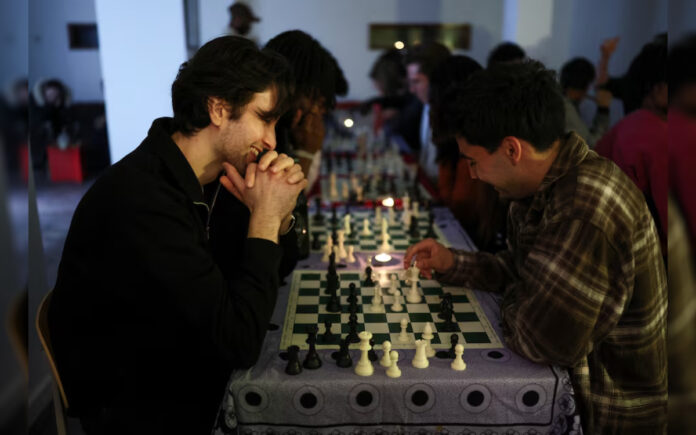London: Blending the intellectual thrill of chess with the vibrant energy of nightlife, London’s Knight Club is redefining how the city’s youth socialize. Founded just last year, the club has swiftly become a magnet for young Londoners seeking deeper connections beyond screens and social media feeds.
Every Tuesday, more than 100 attendees gather at Knight Club events, where the clicking of chess pieces merges with pulsating DJ beats in an atmosphere that feels as much like a party as a mental workout. It’s a unique fusion of culture, conversation, and community, driven by volunteers—most under 25—who say the club answers a growing need for meaningful, in-person interaction.
“Having a game, or having something to bond over, or to start a conversation, enables really deep connections to be made from the get-go,” said 22-year-old organiser Lucia Ene-Lesikar. She noted that the club attracts a wide mix of people, from artists to professionals in finance, tech, and healthcare. “There’s a lot of creative people, but there’s also people who work in finance or work in tech or work in healthcare – so there’s a whole range of people.”
The group’s magnetic appeal goes far beyond the chessboard. In a society increasingly reliant on digital engagement, Knight Club has become a rare physical space where diverse communities gather to form organic connections.
“Knight Club, first and foremost, is a space for people to connect and gather – chess being the medium and the most important way to connect – but more than anything, just providing … a basic, or societal, human need,” founder Yusuf Ntahilaja told Reuters.
With a backdrop of live music and a spirit of inclusivity, Knight Club is more than just a quirky idea—it’s a cultural movement. What started as a social experiment has quickly turned into a weekly ritual, proving that even in an age of rapid technology, analog interactions still have a vital place.



